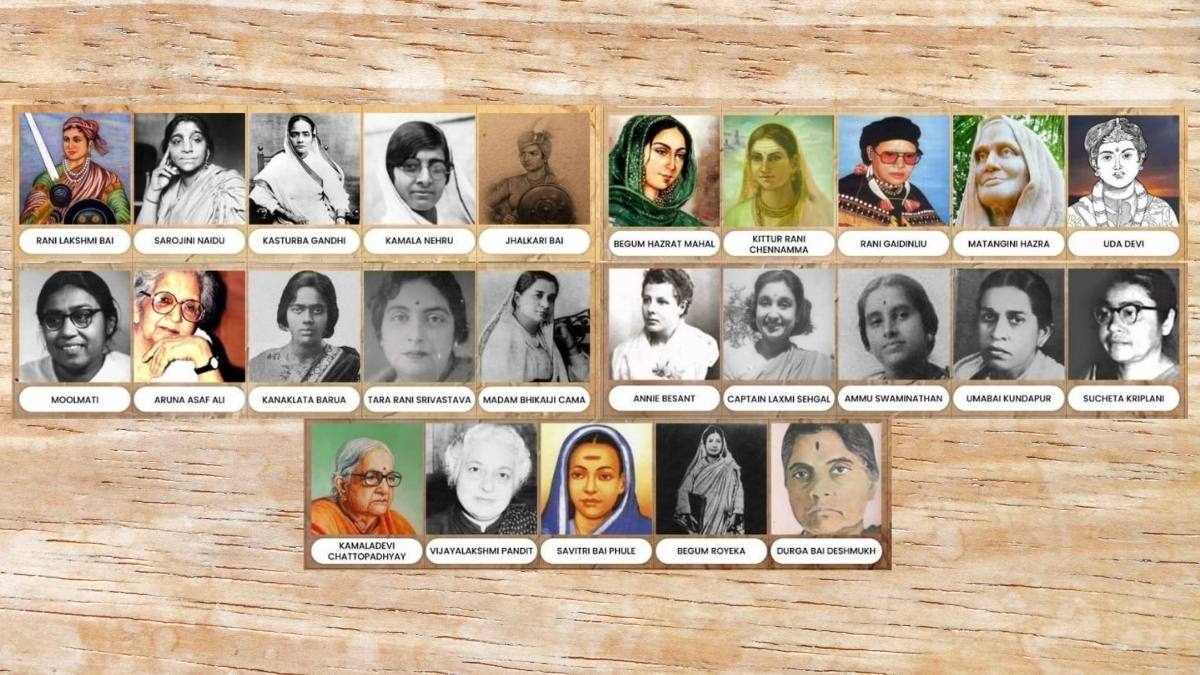Trailblazers of India: Celebrating the Remarkable Achievements of Historical Women
India, with its rich heritage and diverse culture, has been home to numerous extraordinary women who defied societal norms and made significant contributions to various fields. From ancient times to the present day, these women have left an indelible mark, shaping the narrative of India’s past, present, and future. I have attempted to celebrate the exceptional achievements of some of these historical women whose legacies continue to inspire generations.
Ancient India:
1. Gargi Vachaknavi (8th Century BCE):
Gargi, a renowned philosopher and scholar, is mentioned in ancient Indian texts such as the Brihadaranyaka Upanishad. Her intellectual prowess was well-acknowledged, and she actively participated in philosophical debates and discussions. Gargi’s contributions highlight the intellectual capabilities of women in ancient India.
2. Razia Sultana (1205–1240 CE):
Razia Sultana, the daughter of Sultan Iltutmish, ascended to the throne of Delhi in the 13th century, defying gender norms of the time. As the first and only female ruler of the Delhi Sultanate, she implemented progressive policies and demonstrated remarkable administrative skills, leaving a lasting legacy of courage and leadership.
Medieval Period:
3. Mirabai (1498–1547 CE):
Mirabai, a celebrated poet and devotee of Lord Krishna, left behind a rich legacy of devotional compositions known as bhajans. Her unwavering devotion and ability to challenge societal norms through her poetry make her an enduring symbol of spiritual courage and resilience.
4. Chand Bibi (1550–1599 CE):
Chand Bibi, the Queen of Ahmednagar, displayed exceptional military prowess during the Mughal-Deccan Wars, earning her the title of “The Indian Joan of Arc.” Her strategic acumen and leadership skills exemplified the strength and resilience of women in medieval India.
Colonial Era:
5. Rani Lakshmibai (1828–1858 CE):
Rani Lakshmibai, the Queen of Jhansi, emerged as an icon of the Indian Rebellion of 1857. Her fearless leadership and valiant efforts in the battlefield against the British East India Company continue to inspire patriotism and courage. Her story remains a motivating factor for women even today, encouraging them to stand up for themselves even when facing severe adverse challenges.
6. Savitribai Phule (1831–1897 CE):
Savitribai Phule, a social reformer and educator, played a pivotal role in promoting education for women and marginalized communities. Alongside her husband, Jyotirao Phule, she founded the first school for girls in Pune, leaving behind a legacy of social reform and empowerment. Without her initiative, the girls of modern India would still be facing a life of uneducated social upbringing.
Independence Movement:
7. Sarojini Naidu (1879–1949 CE):
Sarojini Naidu, known as the “Nightingale of India,” was a poet, politician, and prominent leader in the Indian Nationalist Movement. She was the first woman to be the President of the Indian National Congress and later became the Governor of the United Provinces. Her eloquence and leadership left an indelible mark on the struggle for independence, making her a symbol of courage and resilience.
8. Kasturba Gandhi (1869–1944 CE):
Kasturba Gandhi, the wife of Mahatma Gandhi, actively participated in the Indian independence movement, demonstrating remarkable resilience and commitment to non-violent resistance even though she was imprisoned alongside other freedom fighters. She was a big support for Mahatma Gandhi, who himself was a propagator of non-violence throughout his life.
Post-Independence Period:
9. Indira Gandhi (1917–1984 CE):
Indira Gandhi, the first female Prime Minister of India, made significant contributions to the country’s political landscape, showcasing resilience and strategic vision during critical periods. She held office for multiple terms, including during Bangladesh Liberation War.
10. Kalpana Chawla (1961–2003 CE):
Kalpana Chawla, an aerospace engineer and astronaut, became the first woman of Indian origin in space, inspiring countless individuals with her achievements in STEM fields. Her missions on the Space Shuttle are an inspiration for the Indian women aspiring to venture into the field of science, earlier predominated by men.
Contemporary Era:
11. Arundhati Roy (born 1961):
Arundhati Roy, an acclaimed author and activist, gained international recognition for her literary contributions and outspoken activism on social and environmental issues. Her novel “The God of Small Things,” has won the Man Booker Prize.
12. Mary Kom (born 1982):
Mary Kom, a renowned Indian boxer, has won multiple world championships and Olympic medals, inspiring future generations with her achievements in sports. She boldly ventured into a field which was considered to be mainly reserved only for men and proved her mettle in it.
13. Draupadi Murmu (born 1958):
Draupadi Murmu, the first woman tribal Governor of an Indian state, served as the Governor of Jharkhand from 2015 to 2020, making history as a trailblazer for tribal representation in Indian politics. She is the President of India and thus the chief of the defence forces and has shown that women can be at the helm of all fields. A saree clad woman as the first citizen of India is a sight for sore eyes.
The extraordinary achievements of these historical women in India across various fields underscore their resilience, intelligence, and courage. As we celebrate their contributions, it is essential to recognize that the journey towards gender equality continues. By honoring and commemorating these remarkable women, we acknowledge their impact on shaping India’s history and inspiring future generations to strive for excellence and empowerment. Instead of placing women on a pedestal, we should understand that they deserve respect, love and sincerity in all walks of life.
